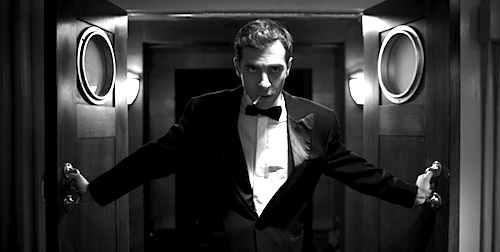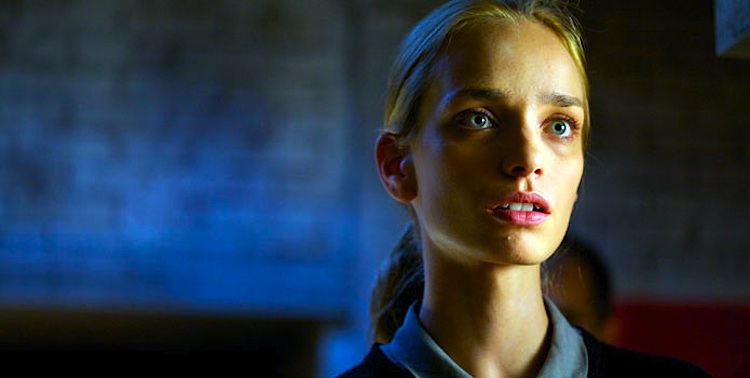By Joe Bendel. Batko Stamenov is like a character in a Samizdat novel come to life, but not necessarily in a good way. The former informer is a figure of existential absurdity rather than defiance. He is still dangerous, though, but to whom is the question in Emil Christov’s The Color of the Chameleon (trailer here), which screens during the 2012 Toronto International Film Festival.
On her deathbed, Stamenov’s mother confesses she really is his mother, whereas he had always been told she was his aunt and adoptive-mother. This does little to develop his sense of belonging. Stamenov is ingratiating by nature, but also reflexively deceptive—swell traits to the secret policeman who recruits a student as an informer and agent-provocateur. Stamenov’s first assignment has him infiltrating a literary club obsessed with the underground novel Zincograph. Like the fictional Samizdat protagonist, Stamenov also takes work in a state zinc etching plant, which happens to be a fine place to pick up some chemical know-how.
Stamenov commits many questionable acts, beginning by signing up as an informer in early 1989, when the writing was already on the soon to be toppled Wall. He has two eggs containing secret instructions should Communism fall in either Bulgaria or the Soviet Union. This is not a good sign. Yet, the task just seems to appeal to Stamenov for non-ideological reasons. When terminated by the official intelligence service, he starts recruiting his own informers for a phony agency just like the protagonist of Zincograph.
Adapted from screenwriter Vladislav Todorov’s real life novel titled Zincograph, Stamenov’s anti-heroics could easily lend themselves to an outrageously over-the-top big screen treatment, but Christov’s approach is rather severe and chilly. Frankly, it takes a while for the film to come together, as Stamenov largely creeps about unappealingly. However, the third act is an intrigue-fueled doozy, making some razor-sharp points about the state of post-Communist Bulgaria, in between the twists and turns.

Chameleon is a film for everyone who enjoys movie references (remember the Bulgarian couple in Casablanca?), thinly veiled critiques of politicians you will never recognize, and liberal helpings of paranoid gamesmanship. There is also an unhealthy preoccupation (as if there were any other kind) with the evil effects of “onanism.” Such is Communism’s continuing legacy for Stamenov.
Looking a lot like a Bulgarian Jude Law, pop star Ruscen Vidinliev’s Stamenov is one cold fish, but he is convincingly calculating and sociopathic. He keeps the film moving along well enough, while the supporting cast provides plenty of color. Rousy Chanev brings the right sort of Machiavellian charisma to bear as Stamenov’s former handler, while Deyan Donkov is notably intense and just plain interesting looking as the Mr. Clean hardball fixer pursuing the freelance saboteur.
The politics of Chameleon are rather ambiguous, particularly for viewers not deeply steeped in the Bulgarian scene. Yet the lingering toxicity of the old regime is unmistakable. Clearly, it spawned a culture of lies and deception that Todorov and Christov argue cannot be easily shrugged off. A slow starter very much worth sticking with, The Color of the Chameleon is recommended for literate, “free-thinking” viewers when it screens again this coming Sunday morning (9/16) as part of this year’s TIFF.
LFM GRADE: B
Posted on September 17th, 2012 at 10:25am.
